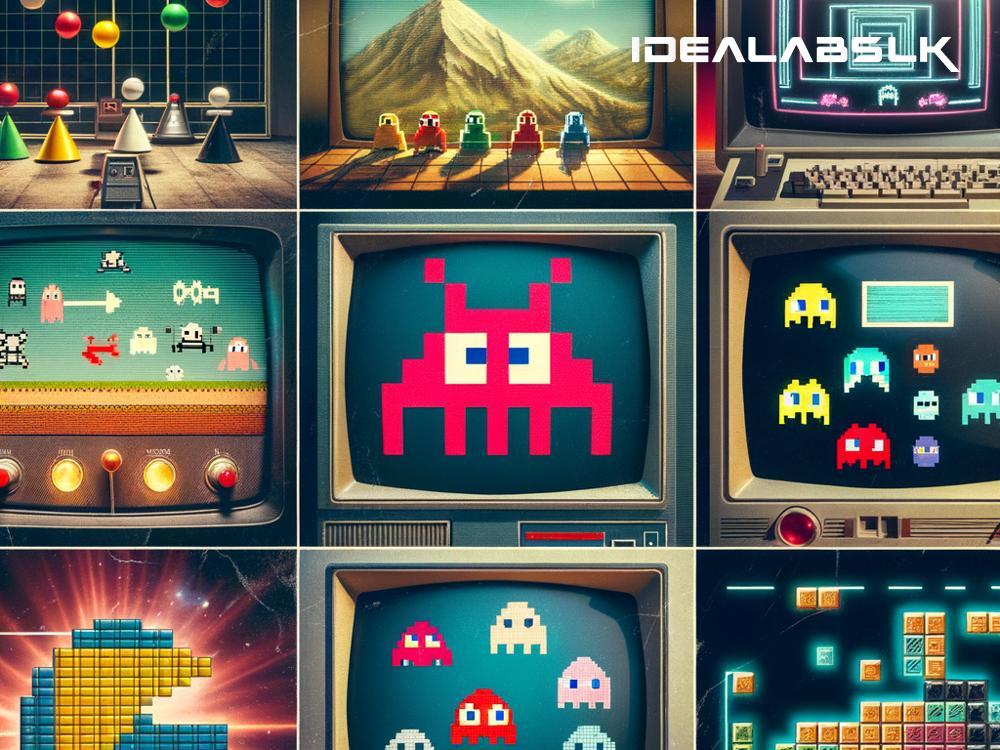The Influence of Early Computer Games on Gaming
The world of gaming as we know it today, with its stunning graphics, immersive storylines, and online communities, stands on the shoulders of the early computer games that paved the way. These pioneering games, developed in the late 20th century, have had a profound influence on how games are made, played, and perceived. Let's take a trip down memory lane and explore the significance of these early games and their lasting impact on the gaming industry.
The Dawn of Computer Games
In the 1970s and 1980s, the first computer games began to appear. These were simple in design and functionality, largely due to the technological limitations of the time. Games like "Pong," "Space Invaders," and "Pac-Man" might not seem impressive by today's standards, but they were groundbreaking. They introduced the general public to interactive electronic entertainment and laid the groundwork for the gaming culture that would follow.
Accessibility and Portability
One of the significant impacts of early computer games was making video games more accessible and portable. Before home computers became widespread, video games were mostly found in arcades. However, with the advent of personal computers and later, gaming consoles, video games entered the home. This shift changed how games were played, making gaming a more personal and accessible hobby. It also paved the way for handheld gaming devices, leading to the portable gaming phenomenon we see today with devices like the Nintendo Switch.
Graphics and Gameplay Evolution
Early computer games were incredibly limited in terms of graphics and gameplay. However, these limitations did not hinder creativity; instead, they fostered it. Developers had to be innovative to create engaging games within the constraints. This push for creativity led to gameplay and storytelling methods that are still used today. For example, the use of pixels in early games has seen a revival in modern indie games, appreciated for their nostalgic value and artistic style.
Moreover, the simple but challenging nature of early games set a precedent for game difficulty and reward systems. The progression from basic text-based adventures to graphically rich environments has been a journey of technological and creative innovation inspired by early achievements.
The Birth of Genres and Multiplayer Gaming
Early computer games also played a crucial role in the development of gaming genres. The limitations of early computers meant that developers had to focus on the core mechanics of a game, leading to the creation of distinct genres such as platformers, role-playing games (RPGs), and strategy games. These genres have evolved but remain popular today, demonstrating the lasting influence of early games.
Furthermore, games like "Doom" and "Wolfenstein 3D" not only pioneered the first-person shooter genre but also introduced multiplayer gaming. This early implementation of multiplayer modes foreshadowed the importance of social gaming, eventually leading to the massive online multiplayer games and communities we see today.
Cultural Impact and Legacy
Perhaps the most significant influence of early computer games is their cultural impact. They introduced a new form of entertainment that has become a significant part of modern culture. Video games are no longer seen just as children's toys but as a legitimate and influential form of media. Early computer games have inspired countless individuals to pursue careers in game development, arts, and storytelling, contributing to the rich and diverse gaming ecosystem we enjoy today.
Moreover, the nostalgia for early computer games has led to a resurgence of retro gaming. Many gamers and developers look back to these games for inspiration, leading to a revival of simple, challenging gameplay and pixel art styles. This renewed interest ensures that the legacy of early computer games continues to influence the industry.
Conclusion
The influence of early computer games on the gaming industry cannot be overstated. They laid the foundation for the technological advancements, gameplay mechanics, and storytelling methods that define modern video games. More than that, they turned gaming into a cultural phenomenon that brings people together from all walks of life. As we move forward, the lessons learned from the pioneers of gaming continue to inspire and shape the future of this vibrant and dynamic industry.

